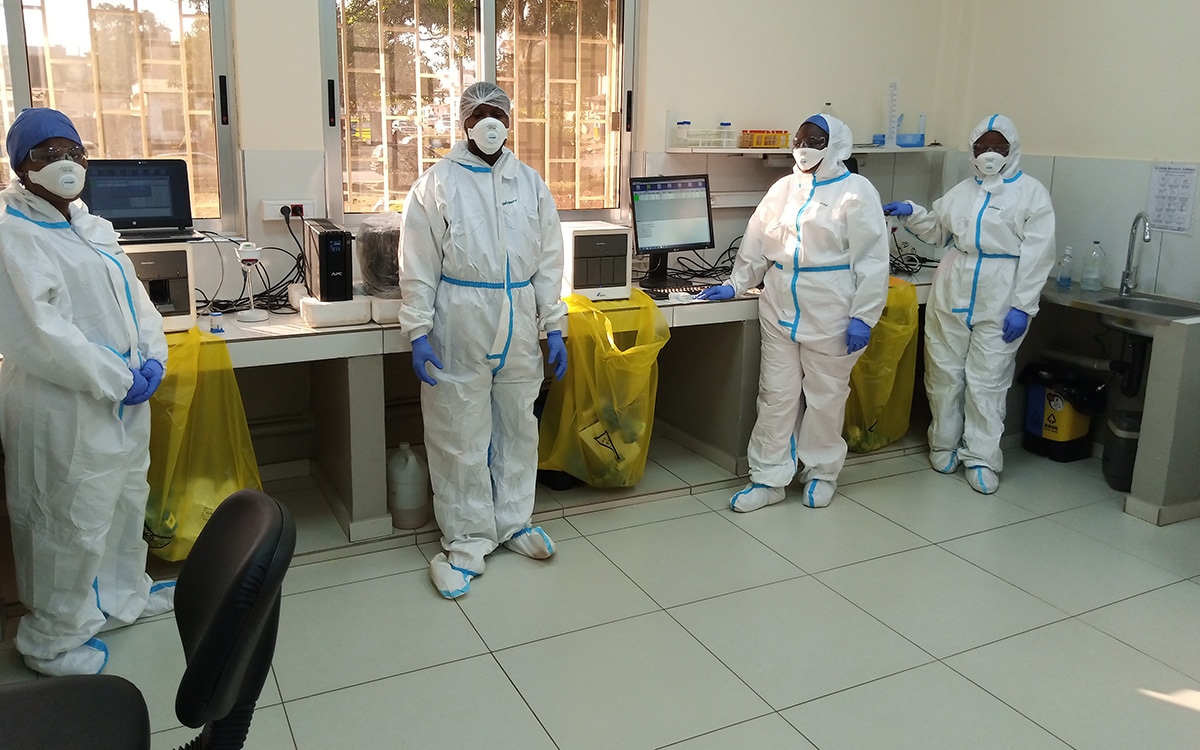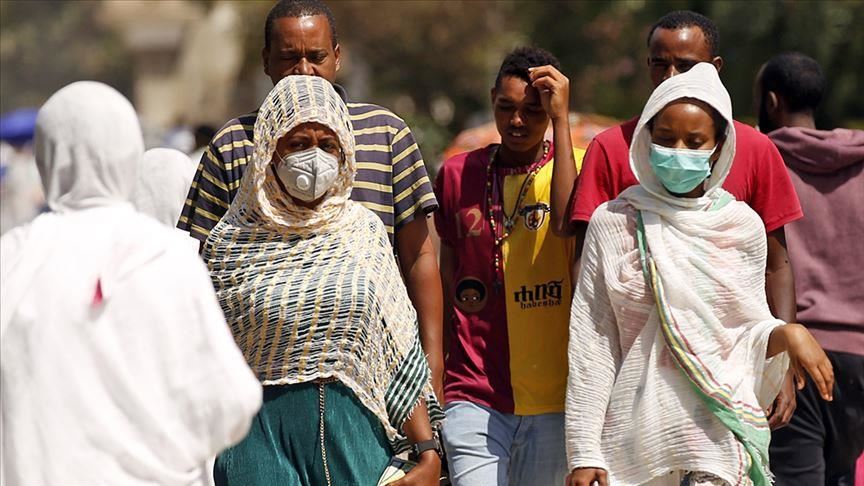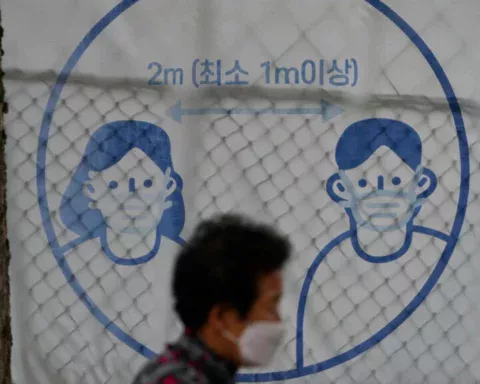In a global pandemic that has tested even the most seasoned public health agencies, Africa CDC is coordinating a continent-wide response to the disease, with critical support from the United States Centers for Disease Control and Prevention (U.S. CDC). This partnership and Africa CDC’s efforts to slow the spread of COVID-19 have been remarkable for a continent with more than 1.3 billion people and significant health system challenges.
As the public health arm of the African Union (AU), Africa CDC’s operating model relies on national public health institutes (NPHIs) and ministries of health to coordinate public health activities at the national level. Five regional collaborating centers (RCCs) coordinated national COVID-19 response efforts with Africa CDC headquarters, based at the AU in Ethiopia. Thanks to its structure, relationships, and reputation, Africa CDC became the agency that Africa turned to for the COVID-19 response.
Accelerating Response Efforts Through Partnership with U.S. CDC
A continent-wide response to COVID-19 required cooperation with networks and global partnerships. U.S. CDC has been a critical partner in many of these initiatives, just as it has supported Africa CDC’s development from its inception. These efforts included early investments in equipping Africa CDC’s emergency operations center, training staff in emergency management principles, helping to develop an advanced fellowship for many of Africa CDC’s technical leaders, and providing technical assistance for establishing a surveillance system at the continent-level that links with national systems to identify potential global health threats.
“The partnership with U.S. CDC has been an important factor in Africa CDC’s response achievements,” said Africa CDC Director Dr. John Nkengasong, who recently received the Bill & Melinda Gates Foundation’s 2020 Global Goalkeeper Award. Many of the competencies and structures essential for success during this pandemic have been developed with the support of U.S. CDC.”
U.S. CDC directly supported COVID-19 response activities through staff embedded at Africa CDC. U.S. CDC also assigned additional staff for priority response initiatives supporting data analysis, communications, training, and various scientific activities.
Continent-wide Surveillance
Data has remained at the core of decision-making during the COVID-19 pandemic. Africa CDC’s continent-wide surveillance system—collecting and analyzing public health information from across Africa—has enabled AU member states, businesses, regional governing bodies, and others to make educated decisions during the pandemic. Well before Africa’s first reported case, Africa CDC began preparedness and response activities by monitoring various information sources for global updates about COVID-19, using a system and skills established with U.S. CDC’s support.
Africa CDC compiled countries’ COVID-19 surveillance information into a continent-wide dashboard that launched in April 2020, with support from U.S. CDC. This dashboard is updated twice a day. Weekly outbreak briefs that use the dashboard helped to analyze disease trends and shape decisions, such as those around resource allocation.
Empowering National Responses
Effective continent-wide response to COVID-19 has relied on country-level progress. Africa CDC led numerous efforts to equip NPHIs, ministries of health, and other national entities with training, information, and guidance to reinforce their country-level responses.
Through alliances with U.S. CDC, academia, scientific organizations, and other partners, Africa CDC developed and released trainings to address priority national response needs. For example, following Africa CDC-led regional and national trainings, COVID-19 laboratory testing capacity grew from two countries early in the outbreak to all 55 AU member states by August 2020.
Africa CDC sent almost 200 experts to 17 countries, as well as Africa CDC headquarters and the five RCCs. These professionals provided expertise in epidemiology, infection prevention and control, laboratory science, and communications.
Looking Ahead
While Africa CDC made significant strides during a very short time, ongoing cooperation with networks and global partnerships, including U.S. CDC, continues. These partnership efforts include:
Laboratory experts at an Africa CDC-supported laboratory. Photo: Africa CDC
- Africa joint continent outbreak strategy
- Africa Task Force for Coronavirus
- Partnerships to accelerate COVID-19 testing in Africa
- A platform to more efficiently meet Africa’s medical supply needs
- A consortium to promote vaccine availability in Africa
- Partnerships that apply data and science toward reopening efforts
The COVID-19 pandemic revealed that Africa needs a strong continent-wide public health system that is resilient and adaptive enough to cope with existing and emerging disease threats. As the continent’s public health agency, Africa CDC’s efforts to help countries strengthen their surveillance and laboratory systems, develop a robust public health workforce, and train countries in emergency response management prove critical to mount an effective COVID-19 defense strategy. Cultivating respectful local and international partnerships is also a crucial component of Africa CDC’s work that can meet the challenges of a rapidly changing public health landscape.
“Going forward, Africa CDC will encourage projects that apply intellectual, manufacturing, and networking potential to meet Africa’s health needs with COVID-19 and promote safe economic reopening,” said Africa CDC Deputy Director Dr. Ahmed Ogwell. “Continued engagement with partners like U.S. CDC is essential for the success of this African-led response.”





